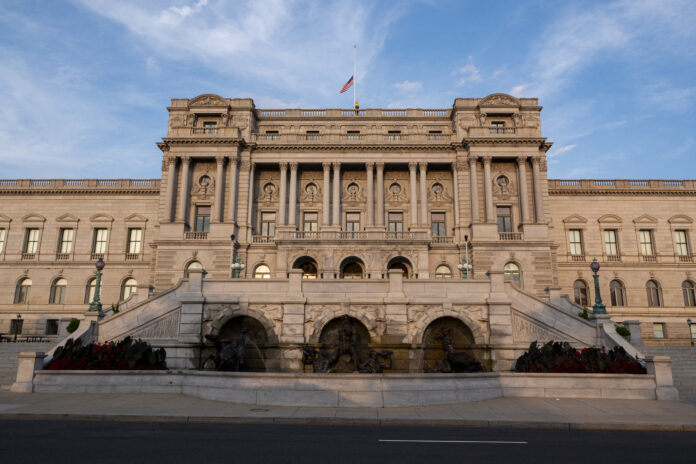A Power Play Gone Wrong
The recent firings of top officials at the US Copyright Office have sparked a constitutional crisis and highlighted the ongoing power struggle between the tech industry and the government. What initially appeared to be a move by Elon Musk and the Department of Government Efficiency (DOGE) to take control of the office has backfired, with the newly appointed acting officials being openly hostile to the tech industry.
The Firings and Their Aftermath
The firings of Librarian of Congress Carla Hayden and Register of Copyrights Shira Perlmutter were seen as a power play by the tech wing of the Republican Party. However, the two men who showed up at the Copyright Office with letters appointing them to acting leadership positions were not from DOGE, but rather from the MAGA wing of the Trump coalition. Paul Perkins, the new acting Register of Copyrights, and Brian Nieves, the acting deputy librarian, have a history of prosecuting fraud cases and working on Big Tech investigations.
The New Appointees
The appointments of Perkins, Nieves, and Todd Blanche, the putative Acting Librarian of Congress, are the result of furious lobbying by the conservative content industry and populist Republican lawmakers. Blanche, a staunch Trump ally, has a history of representing Trump in court and is currently overseeing the DOJ’s side in the Google Search remedies case. As one government affairs lobbyist noted, Blanche is "there to stick it to tech."
The Tech Industry’s Role
Sources close to the matter believe that the firings were a tech industry power play led by Elon Musk and David Sacks, meant to eliminate any resistance to AI companies using copyrighted material to train models without paying for it. The AI report released by the Copyright Office, which concluded that using copyrighted material to train AI models without permission is not fair use, was seen as a threat to the tech industry’s interests.
The AI Report
The report applies the law of fair use to different kinds of AI training and usage, concluding that making commercial use of vast troves of copyrighted works to produce expressive content that competes with them in existing markets goes beyond established fair use boundaries. However, the report also states that government intervention would be premature at this time, given that licensing agreements are being made across various sectors.
The Reaction
The firings and appointments have been met with widespread criticism from both the MAGA wing of the Trump coalition and the Democratic Party. Rep. Joe Morelle (D-NY) characterized the report as "refus[ing] to rubber-stamp Elon Musk’s efforts to mine troves of copyrighted works to train AI models." Sen. Ron Wyden (D-OR) stated that the president had no power to fire either Hayden or Perlmutter and that the move was "another way to pay back Elon Musk and the other AI billionaires who backed Trump’s campaign."
The Constitutional Crisis
The speed of the firings and subsequent power struggle has underscored the brewing constitutional crisis sparked by Trump’s frequent firing of independent agency officials confirmed by Congress. The Library of Congress firings, in particular, reach well past the theory of executive power claimed by the White House and into even murkier territory. The law clearly states that the Librarian of Congress, not the president, appoints the Register of Copyrights.
Conclusion
The power play by Elon Musk and the tech industry has backfired, with the newly appointed acting officials being hostile to the tech industry. The constitutional crisis sparked by the firings continues to unfold, with the Library of Congress awaiting direction from Congress on how to move forward. The outcome of this crisis will have significant implications for the tech industry and the future of copyright law in the United States.

